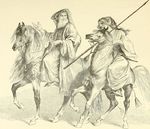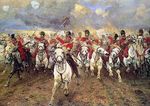History - "History, despite its wrenching pain, cannot be unlived, but if faced with courage, need not be lived again." - Salisbury University
←
→
Page content transcription
If your browser does not render page correctly, please read the page content below
History
Course Offerings / Spring 2023
“History, despite its wrenching pain,
cannot be unlived, but if faced with
courage, need not be lived again.”
– Maya AngelouNote: Check GullNet for Course Modality, Times and Location
HIST 101 and 102 World Civilizations the ongoing civil rights movement occurring right now across the United States,
(Multiple Sections) this class introduces you to key events in our modern world and, more importantly,
Examination of global progress in major civilizations challenges you to reconsider everything you know – or think you know – about race,
from prehistoric times to the present emphasizing personal identity and the making of the modern world.
the economic, social, cultural, intellectual and political (4 Hours Credit) Meets General Education IIA or IIB
trends motivating human beings.
(4 Hours Credit) Meets General Education IIA or IIB HIST 103 First Year Seminar: World Religions
Dr. Arnold Bienstock
HIST 103 First Year Seminar: The World in the 20th Century Explore the basic beliefs and practices of the major religious traditions of the
Dr. Dean Kotlowski Western and the Eastern world – four eastern traditions: Hinduism, Buddhism,
Survey world history during the 20th century, focusing Confucianism and Taoism; and the three Abrahamic traditions: Judaism, Christianity
on political, economic, social, cultural and military trends and Islam. Additionally, analyze some lesser known world religions and some other
as well as representative events and people that are religious trends.
particularly important to today’s world. Topics include (4 Hours Credit) Meets General Education IIA or IIB
the two world wars; Nazism and the Holocaust; the Cold
War; decolonization; revolutionary change in Russia, HIST 201 and 202 History of the United States (Multiple Sections)
China and Iran; and the emergence of the Global South, Survey of the political, economic, social and cultural factors that have shaped the
especially the Middle East, India and China. pattern of life in the United States. Particular problems examined in the light of their
(4 Hours Credit) Meets General Education IIA or IIB sources and historical development. HIST 201 goes through 1865 and HIST 202 from
1865 to the present.
HIST 103 First Year Seminar: Early Modern Colliding Cultures (4 Hours Credit) Meets General Education IIB
Dr. Michael McCarty
This introductory seminar explores the Early Modern HIST 215 Topics in History: Istanbul: City of Empires
period when the world came together as never before: Drs. Kevin Birch and Emin Lelic
gunpowder empires expanded in Asia, Japan challenged This course covers the history
China’s regional power, Europeans conquered the of the former imperial city, today
civilizations of the Americas and African empires first known as Istanbul, from its earliest
connected both ends of the Sahara. But the collisions and historical settlement until the
conflicts of this age were also cultural, as the Renaissance present. During its long tenure as
and Reformation questioned assumptions in the Christian imperial city, under two imperial
world, Islam adapted to pre-existing cultures in India and configurations, Constantinople/
Eastern Europe, and Jesuits and Chinese scholars debated Istanbul had immense global
ethics and salvation. In addition to training students in implications, which are explored.
reading and writing about history, this course helps us think The course is chronologically
about what made our world the way it is today. structured and thematically
(4 Hours Credit) Meets General Education IIA or IIB unified. The first half of the course,
covering the Roman and Byzantine
HIST 103 First Year Seminar: Race, Identity and Power periods (195-1453) is taught by Kevin Birch. The second half of the course, covering
Dr. Joseph Venosa the Ottoman and modern Turkish periods (1453-present) is taught by Emin Lelić.
As the ongoing events across our country reveal, many of the major trends Some common themes that are addressed in all four periods include architecture,
throughout the 20th and early 21st century – including social movements, wars and sacred space, public munificence, imperial city, science and knowledge, religion, elites,
even shifts in popular-culture – have been impacted to a large extent by ideas of preservation/appropriation of previous cultural/religious sites, and health and hygiene.
“race,” racially based power systems and by governments classifying different groups (4 Hours Credit) Meets General Education IIA or IIB and the non-European history requirement for
of people by a particular “identity.” From the rise of colonialism to the Holocaust to the history major.
—1—HIST 215 Topics in History: Korean Civilization HIST 224 Hitler and the Third Reich
Dr. Michael McCarty Dr. Rich Bowler
Often mistakenly seen as insular, Examines the major causes, personalities,
Korea actually has played an policies, events and significance of the Third
important role in East Asian Reich. Focuses on Hitler and the rise of the
and world history. Its brilliant Nazi Party, the instabilities and collapse of the
intellectual, cultural and scientific Weimar Republic, the Nazi “seizure of power,”
achievements did not prevent the Nazi “racial state,” World War II in Europe, the
regional invasions, Japanese Holocaust and the destruction and legacy of the
colonization and Cold War partition Third Reich.
that continues to this day; however, (4 Hours Credit) Meets General Education IIB
South Korea’s global pop-cultural
impact attests to the fact that HIST 309 Americans in the Gilded Age, 1865-1905
Korean voices deserve to be heard. Dr. Tom Goyens
Through lectures, readings, discussions and a research project, students familiarize Explore American politics and society between Lincoln and
themselves with major themes of Korean history from its origins to the present. Theodore Roosevelt. Covers the challenges of Reconstruction
(4 Hours Credit) Meets General Education IIA or IIB and the non-European history requirement for and subsequent race relations, industrial transformation
the history major. and its discontents, everyday life of immigrants and native-
born, science and religion, the depression of the 1890s, and
HIST 215 Topics in History: Pan Africanism continental and overseas imperialism
Dr. Joseph Venosa (4 Hours Credit) Meets General Education IIB
From Cambridge, MD, to Cape Town, South Africa, the
second half of the 20th century saw the rise of numerous HIST 330 Proseminar in History (Multiple Sections)
independence and civil rights struggles for racial and economic Guides students in the production of a thesis-driven formal research paper. Conduct
equality throughout communities in Africa and the Americas. primary research; identify and obtain relevant, trustworthy sources; and analyze
Nevertheless, today the broader Pan-African and Black those materials. Learn and apply conventions of the historical discipline.
liberation struggles across Africa and the Americas still remain (4 Hours Credit) Meets General Education IIB
one of the most complex and misunderstood developments in
contemporary history. This course examines these movements,
HIST 335 Modern Latin America 1800-Present
their major themes and the broader strands of thought within
various pan-African ideologies. Dr. Emily Story
Survey of Latin American history from the
(4 Hours Credit) Meets General Education IIA or IIB and the non-European history requirement for
age of independence from Spain and Portugal
the history major.
through the early 2000s. The primary focus is the
origins and development of natural wealth and
HIST 215 Topics in History: Christians, Muslims and Jews social deprivation in political, social and cultural
in the Medieval Mediterranean developments in several different regions.
Dr. Belen Vicens (4 Hours Credit) Meets General Education IIA or IIB and the
The purpose of this course is to study the interactions between cultures and religions non-European history requirement for the history major.
in the medieval Mediterranean from the seventh century of the Common Era to about
1500 CE. The course focuses on the shifting relations between Christians, Muslims HIST 406/513 The United States in the 20th Century II
and Jews through the investigation of four spheres of contact. These include the
Dr. Dean Kotlowski
Middle East and Byzantium, the Iberian Peninsula, Egypt and North Africa, and the
U.S. history from 1945 to 2000. Study of the major
Ottoman and Venetian competing landscape of the early modern period. Because
diplomatic, economic, intellectual and social forces that
relations between the three Abrahamic religions remain one of the most vexed issues
shaped America in the years following World War II,
in today’s world, special attention is paid to the ramifications of the study of the past
including the Cold War, Civil Rights Movement, tumultuous
for our understanding of the present.
1960s, and trends in the 1970s, 1980s and 1990s.
(4 Hours Credit) Meets General Education IIB
(4 Hours Undergraduate Credit/ 3 Hours Graduate Credit)
—2—HIST 423/523 Imperial Russia and the French and Indian War, the Revolutionary war, The Constitution, the
Dr. Gregory Ference “Founding Fathers” generation, historical memory and monuments, and more.
Study of the Russia empire from Peter the Great to the 1917 revolution focusing (4 Hours Credit) Meets General Education IIB
on the political, economic and social developments, Russia’s expansion and the
conditions that led to revolution. HIST 453/553 The Cold War: A Global History
(4 Hours Undergraduate Credit/ 3 Hours Graduate Credit) Meets General Education IIB Dr. Maarten Pereboom
After 1945, the fierce rivalry between the United States and the Soviet Union
HIST 430 Research Seminar Capstone: threatened the world with nuclear destruction and dominated global politics for
The British Raj: Colonial Empire in South Asia almost 50 years. This course examines the political and cultural impact of the Cold
Dr. Shruti Patel War on the United States, Europe and the developing world.
Examine the creation and expansion of (4 Hours Undergraduate Credit/ 3 Hours Graduate Credit) Meets General Education IIB
British colonialism in India, or the British
Raj. The ascent of British power in the HIST 477/577 Military History of the Modern World
18th century, through its peak in the Dr. Bart Talbert
19th century, illuminates one of the most Examines the military history of the modern world
transformative influences of modern from 1500 AD to the present. The focus is on the
South Asia. How did colonialism originate strategy and tactics used by modern armies, how
but also evolve over this period? What these affected the lives of populations and how new
ideas, technologies and mechanics developments in these fields have influenced the
structured its backbone? How did this history of the modern world.
political and social phenomenon affect (4 Hours Undergraduate Credit/ 3 Hours Graduate Credit)
local actors and lives? In its aftermath, Meets General Education IIB
what legacy did colonialism leave behind? Study encompasses a diverse investigation
of fascinating subjects, including the East India Company and its administration HIST 490/590/GSST 485 Gender and Sexuality Studies Capstone Seminar
of governors, residents and military; European ideas of “liberalism,” “reform” and
Dr. Kara French
“civilization”; special laws for Hindus and Muslims; controversies of gender and caste;
This course examines gender and sexuality from an
the lives of Indian royalty; famines and peasants; European knowledge compared to
interdisciplinary perspective, including history. Students read
Indic knowledge; and much more. Explore the nature of early European colonialism,
foundational feminist writings as well as newer scholarship
its development and eventual rise in South Asia.
in the field in multiple disciplines. History students have the
(4 Hours Credit) Meets General Education IIB opportunity to pursue an independent student-directed research
project on a topic relevant to gender and sexuality. A further goal
HIST 430 Research Seminar Capstone: The World of George Washington of the course is to help students explore careers and graduate
Dr. Céline Carayon programs relevant to gender and sexuality studies.
Use the life of George Washington (1732- (4 Hours Undergraduate Credit/ 3 Hours Graduate Credit) Meets General
1799) as a window into colonial America and Education IIB
the birth of the United States. Washington
lived through one of the most transformative HIST 612 Special Topics Seminar: The Civil War and American Memory
periods in American history. His experiences
Dr. Creston Long
reveal much about the many peoples, places
The Civil War is a defining event in American history. It brought about
and ideas that made up early America and
the end of slavery, settled the question of federal over state authority,
the forces that brought about change at the
and accelerated the industrialization and modernization of the nation.
birth of the new nation. Rather than engaging
In this course, students study how Americans have understood and
narrowly with Washington’s biography,
commemorated the Civil War, focusing on disagreements over the
explore a wide range of topics inspired by his
causes and aims of the war, varying perceptions of its results, and
life through class readings, discussions and personal research, such as the tobacco
present-day considerations of its legacy.
economy and slavery, colonial government and politics, religion and freemasonry,
(3 Hours Graduate Credit)
diplomatic relations with Native Americans, marriage and gender, frontier expansion
—3—HIST 613 Seminar in Ancient History: The Ancient Mediterranean ANTH 102 Biological Anthropology and Archaeology
Dr. Kevin Birch Dr. Elizabeth Ragan
This course introduces students to graduate- This course explores humanity’s intertwined
level study, methods and themes in ancient biological and cultural roots, showing how we
Mediterranean history from approximately the became the people we are today. Origin stories
first millennium BCE through the mid-sixth are often contentious, with different groups
century CE. The ancient Mediterranean has long passionately promoting different narratives.
been a fascinating region to study because of the By introducing you to the techniques used
diversity of the civilizations that emerged and to discover and understand our ancestors
developed in a relatively small geographical area. and their works, you will become better
Each had its distinctive character, but vigorous equipped to decide how your own particular past unfolded. Understanding our deep
cultural exchange in the region and beyond led roots is vital, since knowing how humans have adapted to sometimes dramatic
to the assimilation, adaptation or rejection by environmental and social changes – thriving, not merely surviving, over thousands of
one culture of the ideas and practices of others. In this course, discuss topics such years – may help us cope with the increasingly disrupted world we live in today.
as connectivity, globalization, migration and networks that have come to dominate (4 Hours Credit) Meets General Education IIIB or IIIC
current scholarship on the region, as well as other themes such as systems of
government and political authority, identity formation, social structures, religion, ANTH 202 Archaeology Survey: North America
violence, and the ancient economy. Students become familiar with the large body of Dr. Elizabeth Ragan
archaeological and literary evidence from the ancient Mediterranean, and they gain This course introduces students to the
an understanding of the connections between the ancient world and the world we archaeology of North America, from the first
live in today. arrival of humans during the last Ice Age
(3 Hours Graduate Credit) through European colonization. “Arrowheads,”
potsherds and old bottles provide a rich record
of how people have adapted to our continent’s
many and varied environments – both the
Anthropology
Native Americans of prehistory and the
immigrants from Europe and elsewhere who
have reshaped the land in recent centuries. Students also learn how archaeologists
The Anthropology Program offers a Bachelor of Arts in interdisciplinary reconstruct past human behavior from the material remains left behind, and the
importance of preserving these often-endangered traces of our past.
studies with an anthropology track and an anthropology minor.
(4 Hours Credit) Meets General Education IIIB or IIIC
ANTH 100 Cultural Anthropology and Linguistics
ANTH 459 Seminar in Anthropology: Ethics
Dr. Christine Vassallo-Oby
You may be asking yourself the following questions: What is anthropology and what Dr. Elizabeth Ragan
do anthropologists do? Begin to analyze how anthropology works to understand When a geologist studies rocks, the rocks have no rights ... but anthropologists study
humanity. How do anthropologists understand humanity? Anthropology is a humans, who require greater care. While the basic principles of ethical social science
social science. It is a rigorous discipline rooted in the scientific method. Focus on research are clear, applying them in cross-cultural contexts can be complicated, since
how particular methods, like fieldwork and participant observation, are used by “right” and “wrong” are culturally constructed concepts. Is there a set of “universal
anthropologists to decode complex cultural processes that shape our understanding morals” that all should follow? To what extent can cultural relativism be applied to the
of particular a culture(s) – from immigration and political violence to food and tourism. practice of anthropology? What principles should archaeologists, whose subjects
Gain an introduction to theoretical models, case studies (or as anthropologists like are long dead, follow? In this course, discuss the principles and codes underlying
to call it, ethnography) and methods that focus on culture, communication and, anthropological ethics, and consider past and current ethical dilemmas for the
ultimately, what makes humans, humans! lessons they can teach.
(4 Hours Credit)
(4 Hours Credit) Meets General Education IIIB or IIIC
www.salisbury.edu/history
—4—Make Tomorrow Yours SU is an Equal Opportunity/AA/Title IX university and provides reasonable accommodation given sufficient notice to the University office or staff sponsoring the event or program. For more information regarding SU’s policies and procedures, please visit www.salisbury.edu/equity.
You can also read



























































